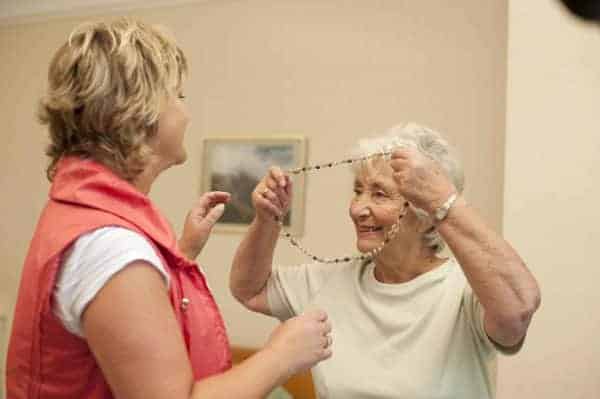Find out about caring for elderly parents and about different ways to ensure that any challenges that come with your position are met with practical solutions.
1 in 5 people aged between 50 and 64 in the UK provide care to their parents, or to another elderly relative. Around a third of the 6.5 million people who are family caregivers in the UK are aged 65 and over and the caregivers aged 75 and over has increased by over 30% within the last two decades.
If you are a caregiver to your elderly parents you know all too well the challenges that come with what you do. You will have given up some level of independence, and you’ll have accepted the role reversal between you and your mum or dad. The emotional and physical challenges can be incredibly tough to deal with and caregivers often go through issues such as:
- Ignoring their own physical health because of a focus on their parent’s health
- Struggling with anger, sadness, loneliness and other negative emotions as a result of their position
- Struggling to balance work life and the needs of their own children
- Feeling a huge sense of loss
- Struggling with a parent who may be angry or present challenging emotions
- Handling the care of a parent who has dementia
These are just some of the challenges associated with caring for a parent. If these problems are not balanced with self-care and all-round life balance, a caregiver can end up with caregiver burnout which is bad news for both the person receiving care and the carer.
You can avoid caregiver burnout by taking the right action, right now. Here are some suggestions to help you stay healthy and happy in your position as a carer for your elderly parent:
Take Time Just For You
You can become so involved in your role as a carer that you forget about your own needs. You must have a break every now and then to take a walk, read a book, go to a yoga class, meet with a friend or even go on holiday.
A live-in care agency can help provide respite care from a qualified live-in carer who will care for your parent for an agreed amount of time. A live-in care agency can usually provide a live-in carer within 24 hours if the funding is private, and can be an excellent resource to have on hand.
You can also sometimes get help from the NHS with care for your elderly parent, and the first step to arranging that is to speak to your local social services.
Get Everything Arranged And In Place
By ‘everything’ we mean all of the things that need to be in place for you to be able to care for your parent without additional worries. Power Of Attorney, for example, or making arrangements with family members to share the care of your parents.
Minimise Stress
As a caregiver things are stressful as it is, without any additional stress on top. Get outside help for strained relations between yourself and your parent, this happens to a lot of people in your situation and it is not abnormal. Let any friends or family members know that you cannot address certain problems or issues, or at least not straight away. Let work know about your position, and be open about how you are feeling. There is no shame in admitting this is difficult, because it is and you’re not alone in feeling that way.
Remember that caregiving is challenging as a career let alone for somebody in your position who has no training and who has to provide care for a loved one. If you do need help, don’t be afraid to seek it from your GP, social services, from friends and family or from a live in care agency. You can find out more information about live in care here.






1 Comment. Leave new
It’s my passion to look after elders,I’m looking for that job